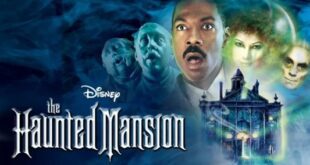When I saw Get Out (2017) (see our review here), I knew that it would be an important movie for the horror genre. I also knew it would be a controversial one. I thought that controversy would be born of the film’s masterful treatment of American anxieties about race, and there was plenty of that to be sure.

What I didn’t expect was the common critical refrain of, “It’s not horror; it’s more of a psychological thriller.” This led me down a rabbit hole of conversations with fellow horror fans and investigations of genre theory. I call these kinds of people the Genre Police. And I’ve discovered something vitally important about what people are saying about Get Out:
The people saying it are wrong.
Horror and thriller aren’t nearly as spongy of genres as everyone claims. I don’t know why people like disqualifying new or unconventional horror films as nonparticipants in the genre, but they do it all the time. Why is Dracula (1931) horror and Silence of the Lambs (1991) not? I’ve written about the boundaries of the genre before, but lately I’ve seen these heated debates over definition and nomenclature explode over the internet.
Because people are party poopers.
In his book The Aesthetics of Horror Movies, Thomas M. Sipos offers a series of definitions and guidelines for the genre that focus on two chief things: emotional objective and a work’s treatment of reality. This essentially means that a horror film is any unrealistic movie that focuses on scaring its audience.
Get Out does that. It does that better than most of the movies that have come out in the last five years.

Get Out is a perfectly executed scary movie for the right audience. The subtle cinematographic tricks guide the viewer through a journey of gradual discovery, and that discovery shouts at the end of the film that all is not quite right. The score also communicates a detached, hollow experience with tribal, African undertones and predominant use of the silence of the upstate New York woods.
So why do we call it a thriller? A thriller, by popular definition, describes a suspension between a protagonist and antagonist. Se7en (1995) is a quintessential thriller based on its emphasis on Morgan Freeman and Brad Pitt’s detective characters’ pursuit of the mysterious and terrifying John Doe. Very little of the film explores the violence that the killer causes in medias res, preferring to treat his crimes with forensic, anatomical reserve. That’s what suspense does. It’s about the riddle, the game. It’s not about the “horror.”
Can Get Out make a similar claim? Can it truly boast that its protagonist spends most of the movie trying to best his antagonists? Or is he, for the lion’s share of the film, merely trying to survive? In no way is Get Out a damn thriller. Escape is the goal of a horror protagonist. If they kill the archetypal Mad Doctor, the Satanist Cult, the Masked Killer chasing them? That’s icing on the cake, not grounds for genre disqualification.

Horror also distinguishes itself with its perceptions of reality. A guy in a mask is not treated like a guy in John Carpenter’s Halloween; he’s a shape, a force of nature. Horror is an opportunity created by a heightening or distortion of reality. Normally, this manifests as ghosts, aliens, and monsters. But in the aforementioned Halloween and in gory crime-horror works like Saw and Hostel, the genre credentials are earned by the heightening of an existing reality into an occasion for horror. Get Out takes the horrors of modern, micro-aggressive American racism and heightens them into horror.
On a tangentially related note, if “politics” do not belong in your horror, I suggest you find another genre posthaste. Horror was created largely to provide allegory. It’s one of the few genres guaranteed to get a visceral reaction. The best filmmakers in the genre use that viscerally affecting quality to communicate a belief, a message, a point. To disavow political expression in horror cinema is to deny those valuable messages (and pieces of art they’re attached to) the chance to be heard.
Genre matters when we discuss movies. It provides us with a framework, a rubric, and a canon of works against which to compare a film. What isn’t as vital are these self-appointed gatekeepers who want every horror movie to be a quasi-comedic splatstick gorefest or yet another uninspired found footage film. The horror genre is changing and growing, and can only grow as large as the box we put it in as fans. The thriller is an important genre to be sure, and some of my favorite films fall squarely into it (all of Dario Argento’s gialli movies are thrillers, technically), but it’s not a dumping ground for the horror films we don’t like or understand.
The movies that aren’t as scary as we like our horror movies aren’t thrillers; they’re just horror movies that didn’t scare you. And that’s what I love about horror… the malleability of it.
It’s a subjective and dynamic genre, and rigid guidelines cheapen it.
Get Out deserves to shine in the firmament with the stars of horror genre. It doesn’t deserve to be disowned by an inexplicably passionate sector of the fandom because it approaches the genre in a new way. If you find yourself in a Facebook thread or a spirited bar discussion about Get Out and somebody tells you, “It’s not really a horror movie, though…”
You can now know, in no uncertain terms, that you could be doing better things with your life.
You can know that they’re wrong.
And if you’re the person on the other end of that discussion? If you’re trying to convince someone that Get Out doesn’t belong with the horror greats of recent memory?
Relax. Take a deep breath.
You’re wrong.
Read that last sentence again. Read it a few more times, and then hand in your badge and your gun.
You’re not the Genre Police. You can leave.
In fact, you can Get Out.
 PopHorror Let's Get Scared
PopHorror Let's Get Scared




